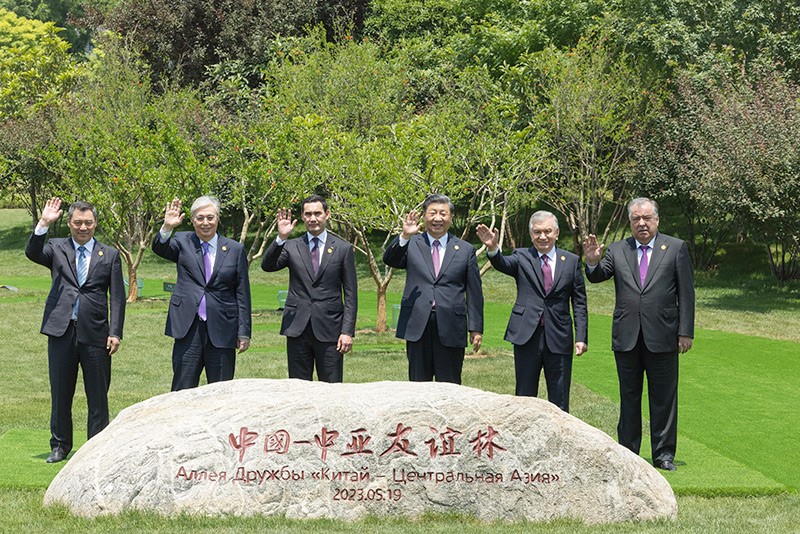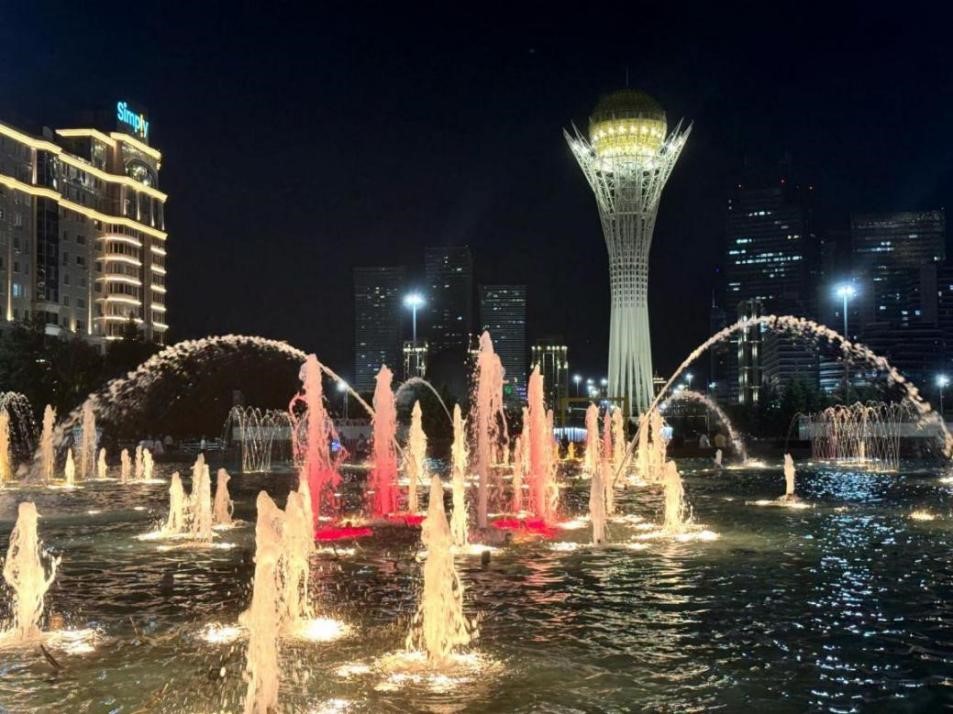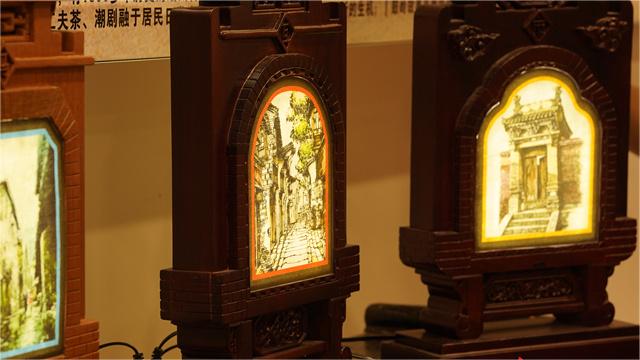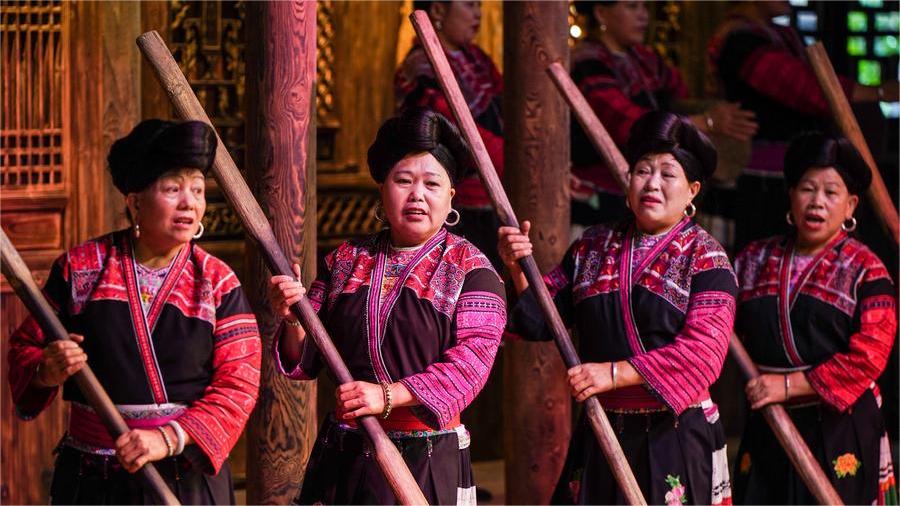President Xi's Silk Road stories: A new era begins in Kazakhstan
Astana, the capital of Kazakhstan, is the birthplace of the Belt and Road Initiative, marking the beginning of the new era of the Silk Road.
"To forge closer economic ties, deepen cooperation and expand development space in the Eurasian region, we should take an innovative approach and jointly build an 'economic belt along the Silk Road'. This will be a great undertaking benefitting the people of all countries along the route," said President Xi Jinping in his speech titled "Promote People-to-People Friendship and Create a Better Future Together" in Astana on September 7, 2013, where he first proposed the Silk Road Economic Belt.

Chinese President Xi Jinping and leaders of five Central Asian countries plant six pomegranate trees that represent close China-Central Asia solidarity and cooperation after the first China-Central Asia Summit in Xi'an, Northwest China's Shaanxi Province, May 19, 2023. (Photo: Xinhua)
"President Xi's speech has become a part of our university's glorious history," said Aisulu Tuktubayeva, who participated in the event in 2013. She said that President Xi's proposal of the Silk Road Economic Belt greatly inspired everyone, leading them to believe that "a new chance of development for Kazakhstan has arrived."
Commenting on enhancing policy communication, road connectivity, trade facilitation, monetary circulation and people-to-people bonds, President Xi said, "we may start with work in individual areas and link them up over time to cover the whole region."
The ancient Silk Road was not only a trade route but also a route of friendship. The friendly exchanges between the Chinese nation and other nations along this route have shaped the Silk Road spirit, embodied in peace and cooperation, openness and inclusiveness, mutual learning and mutual benefit.
Today, the Belt and Road Initiative has taken root in Kazakhstan, bearing fruitful results.
At the training area of the Luban workshop at East Kazakhstan Technical University (EKTU), students follow their teachers' instructions, learning the operation and principles of vehicle maintenance equipment and practicing hands-on exercises. This Luban workshop, jointly built by Tianjin Vocational Institute and EKTU, was established to meet Kazakhstan's need for technical professionals. The first phase includes a transportation equipment and technology program, with four training areas and five standard courses.
As a saying in Kazakhstan goes: "where there is solidarity, happiness will follow." In recent years, China and Kazakhstan have adhered to the principles of extensive consultation, joint contribution and shared benefits, successfully implementing several important Belt and Road cooperation projects, widely benefiting the people of both countries.
The two countries have successfully built a comprehensive, multifaceted connectivity network. The China-Kazakhstan (Lianyungang) logistics cooperation base provides Kazakhstan with an outlet to the Pacific Ocean. The China-Europe Railway Express, which passes through Kazakhstan, is constantly running and diversifying its routes.
Since its operations began in February this year, China-Kazakhstan (Xi'an) Trade Logistics, a freight terminal in Xi'an international port station has handled tens of thousands of tons of goods, as one of the important achievements of the first China-Central Asia Summit. Currently, China and Kazakhstan are cultivating new growth points in automotive manufacturing and the new energy sector, promoting practical cooperation toward high standards, sustainability and benefiting people's livelihoods.
2024 is the 'Kazakhstan Tourism Year" in China, and the two countries will host a series of exciting events, including "Ethnic Village" exhibitions, a crafts expo and food festivals.
China and Kazakhstan have also achieved fruitful cooperation in education, science and technology, healthcare, culture, tourism and archaeology. The mutual visa exemption agreement between the two countries has come into effect, and agreements to establish cultural centers have been signed. Joint archaeological teams have been formed to excavate and study the Rahat site. Five Confucius Institutes established by China in Kazakhstan are operating smoothly, and the China-Kazakhstan Center for Traditional Medicine has treated nearly 8,000 patients. Additionally, co-produced films and mutual translations of books are deepening cultural exchanges between the two countries and strengthening the foundation of neighborly and friendly public opinion.

The Baiterek Tower, also known as the "Tree of Life," located in the central promenade of Astana, Kazakhstan. (Photo: People's Daily/Cao Shulin)
In recent years, the two heads of state have jointly established the goal of building a China-Kazakhstan community with a shared future, setting a new benchmark for the development of bilateral relations, providing new momentum and opening up new prospects.
Kazakhstan's President Tokayev stated that Kazakhstan is a good partner that China can always trust. Kazakhstan actively supports the Global Development Initiative, the Global Security Initiative and the Global Civilization Initiative put forward by President Xi, and is willing to maintain high-level exchanges with China, enhance the strategic alignment of the Belt and Road Initiative with the construction of the Middle Corridor, promote greater development in bilateral economic, trade and cultural cooperation, and engage in closer and more efficient collaboration on international issues with China.
(Planning: Tian Junrong, Ma Xiaoning, Zhao Qiang, Yang Xuebo, Jiang Yun
Coordination: Li Xiang, Meng Xianglin, Liang Changjie, Liu Hui, Song Jingsi, Kuang Xixi, and Wang Xiangyu
Writing: Cao Shulin, Zhao Yipu
Translation: Shen Niming and Yang Yang
Proofreading: Ma Yuan, Han Xiaomeng and Lu Dong)
Photos
Related Stories
- Feature: Greeted by household Chinese song, Xi starts Kazakhstan trip to build on unique partnership
- Interview: Xi's visit highlights China's commitment to regional cooperation, SCO unity, says Kazakh scholar
- Xi's visit to promote SCO cooperation, enhance China-Central Asia relations
- Carry forward the millennia-old friendship between China and Kazakhstan
- Xi says ready to push for SCO's greater progress at Astana summit
Copyright © 2024 People's Daily Online. All Rights Reserved.









